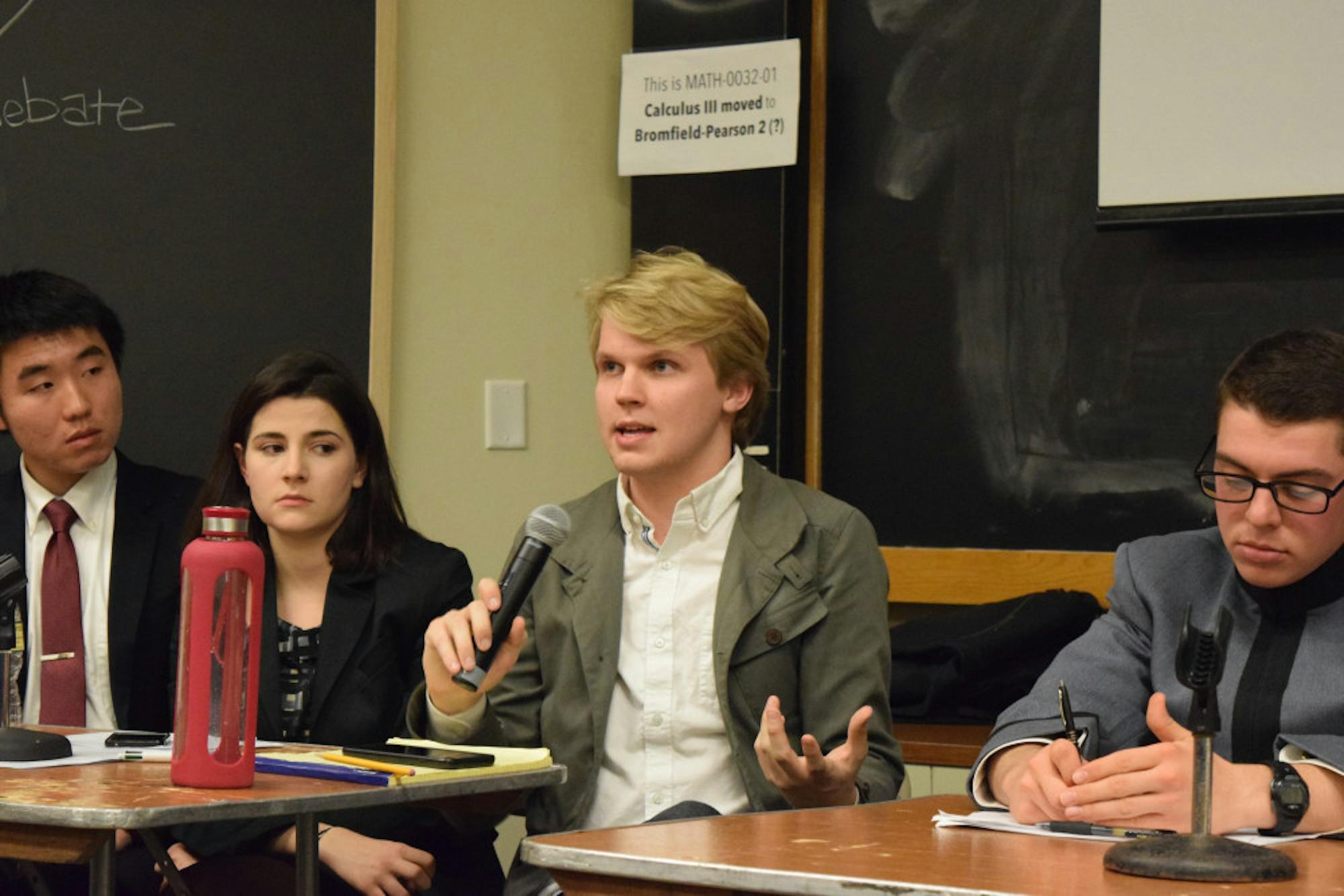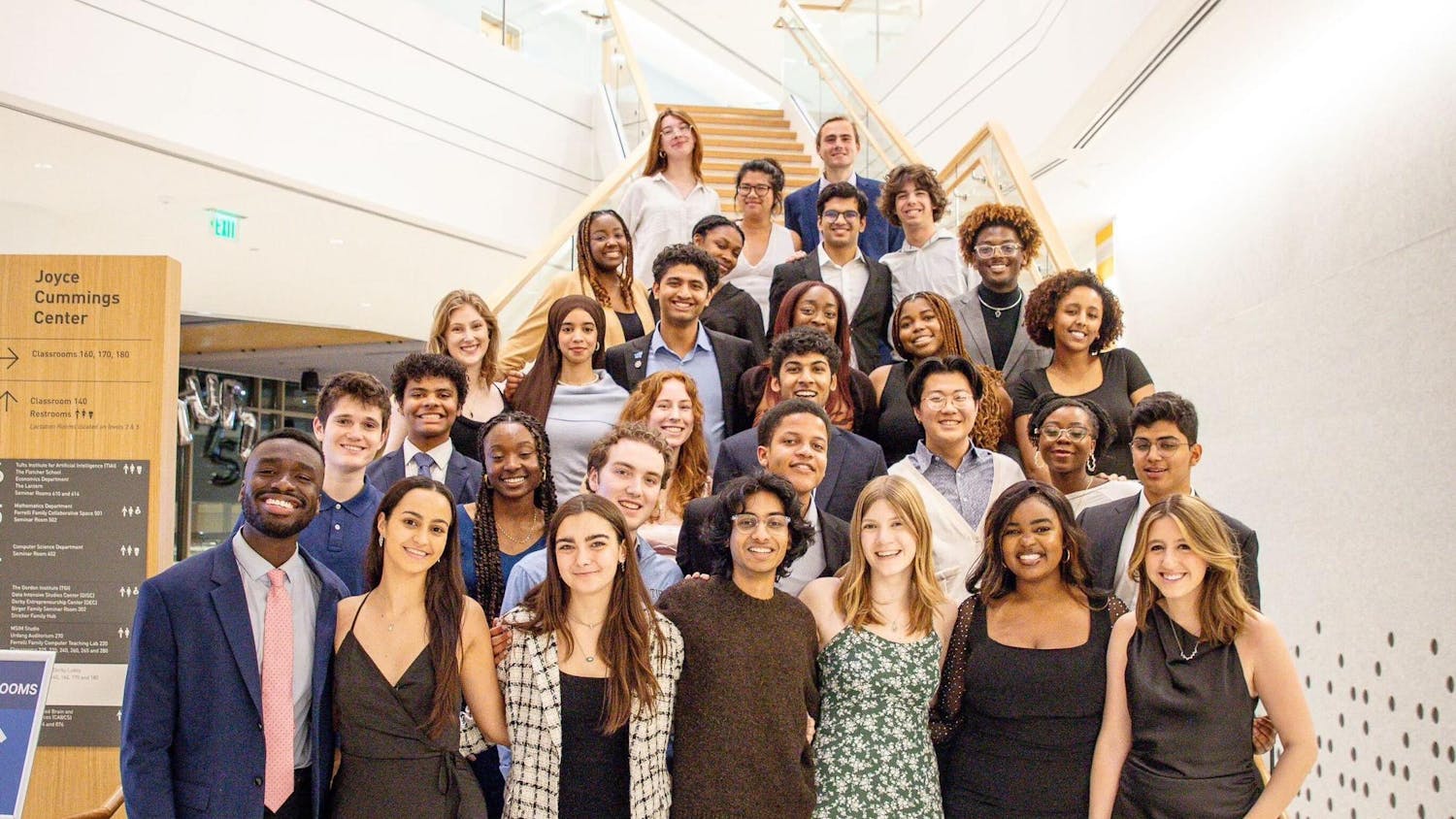The Tufts Debate Society hosted the debate team from the United States Military at West Point for a debate about mass surveillance on Nov. 17, in front of an audience of students and Debate Society members.
The Tufts team argued in favor of mass surveillance, while the West Point debaters argued in opposition. Each participating team consisted of four members selected from among the ranks of the respective debate clubs.
The Tufts team asserted that mass surveillance can help prevent crime and increase the quality and accuracy of prosecution in the United States. They justified the existence of mass surveillance programs by stating that American citizens enter into a social contract with the government by choosing to live here. The “contract” allows the government to collect data in order to keep the people safe.
By contrast, the West Point team argued that mass surveillance lacks sufficient oversight, unfairly targets minority groups and violates people's right to privacy. According to the West Point debaters, mass surveillance is unconstitutional and the social contract justification is invalid.
“Anything outside of the constitution is not part of this social contract,” one West Point debater said.
Each team made three seven-minute speeches in support of its argument, followed by a question-and-answer round in which the teams posed questions to each other. To conclude the formal debate, each team was allowed one rebuttal speech.
As noted in the event’s closing remarks, the opposing teams used markedly different debate styles. The West Point team is accustomed to policy debate and thus relied on empirical data and statistics to support its arguments. The Tufts debate team usually competes in parliamentary-style tournaments and thus based its arguments more on theory than empirical evidence.
At the end of the event, the audience was polled using their mobile phones in order to assess people’s opinions on the topic. Fifty-nine percent of the audience believed mass surveillance is justified, 35 percent believed it is not and six percent was undecided.
This event marks the third time the Tufts Debate Society has hosted a public debate, according to its Facebook page. Mathew Lee, president of the Tufts Debate Society, said that the club is interested in hosting more public debates in the future and sees these events as a way to facilitate dialogue on campus.
Lee, a senior, added that he proposed the topic of mass surveillance to the West Point debate team due to its potential popularity among Tufts students and its relevance in current political affairs.
“I think [mass surveillance] is both international relations-related and a timely domestic politics topic,” Lee said.
Lee added that the Tufts Debate Society could play a larger role in facilitating campus conversation.
“I’ve heard that there are debates people try to set up where there is a certain side that people are not comfortable taking," Lee said. "We could step in as Tufts Debate Society members and not have to take the optimal view."
Tufts Debate Society hosts West Point team in mass surveillance debate

Members of the Tufts Debate Society speak during the Mass Surveillance Public Debate with West Point in Barnum on Nov. 17.





